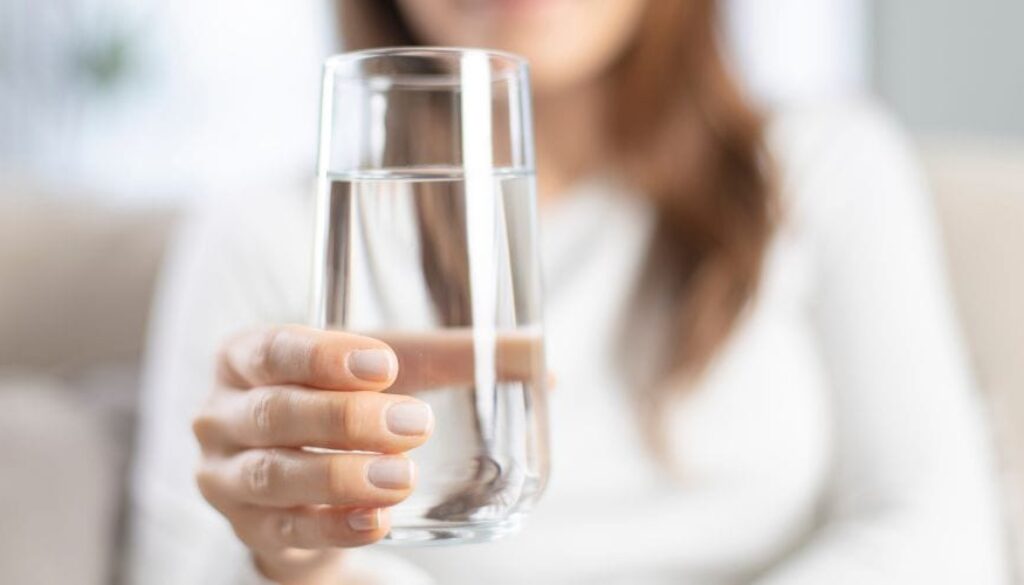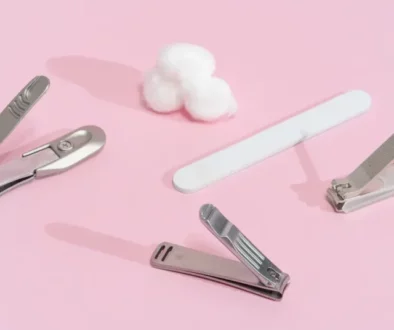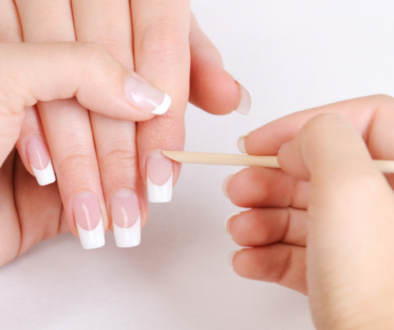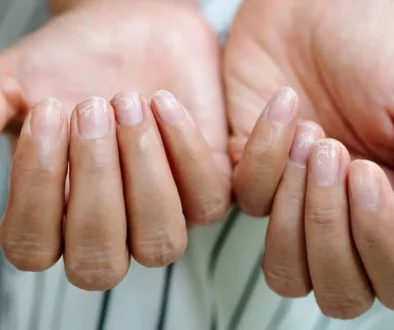The Role of Hydration in Nail Health
Understanding the importance of hydration in nail health is key to maintaining strong, beautiful nails. Nails play an essential role in protecting our fingertips and enhancing the overall appearance of our hands. While we often focus on nail polish colors and trendy designs, we tend to overlook a crucial factor for healthy nails – hydration. Hydration is not only vital for our bodies but also for the health and strength of our nails.
Understanding the Structure of Nails
Before delving into the role of hydration in nail health, it is essential to understand the structure of our nails. Nails are composed of a protein called keratin, which is also found in our hair and skin. They are made up of several layers that protect the sensitive nail bed underneath.
Nails serve various functions, including providing support to the fingertips, enabling precise movements, and enhancing touch sensitivity. Additionally, healthy nails are an indicator of overall well-being.
Importance of Hydration for Nails
Just like our skin, nails require adequate hydration to remain healthy and strong. Dehydration can lead to various nail problems, including dryness, brittleness, and breakage. Lack of moisture in the nails can make them more prone to chipping and peeling, affecting their overall appearance.
How Water Affects Nail Health
Water is a vital component when it comes to maintaining nail health. Our bodies need an adequate intake of water to keep our nails moisturized from within. When we consume enough water, it helps to improve the appearance and strength of our nails. Moreover, water aids in transporting essential nutrients to the nail bed, promoting healthy growth.
Moisturizing Nails
In addition to internal hydration, external hydration is also essential for maintaining healthy nails. Using moisturizers specifically designed for nails can help prevent dryness and keep them nourished. Moisturizers should be applied regularly to the nails and cuticles to retain moisture and prevent them from becoming brittle.
Dietary Factors for Nail Hydration
While external hydration is crucial, the importance of a well-balanced diet cannot be overlooked. Certain nutrients play a significant role in nail health and hydration. Including foods rich in vitamins A, C, E, and biotin can promote nail strength and moisture retention. Foods like salmon, eggs, spinach, and nuts are excellent choices for maintaining healthy nails.
Proper Nail Care Practices
In addition to hydration, proper nail care practices are essential for maintaining their health. Regularly trimming and filing nails helps prevent breakage and splitting. It is important to avoid cutting nails too short, as it can lead to ingrown nails and other issues. Additionally, using gentle nail care tools and avoiding harsh chemicals is necessary to protect the nails and prevent dehydration.
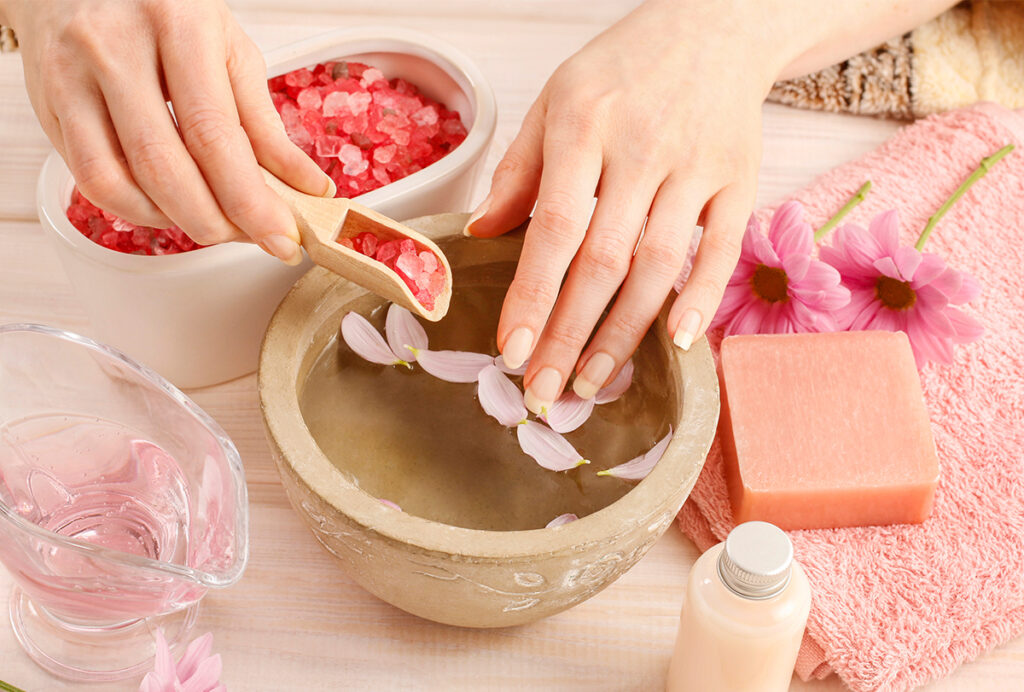
Effects of Environmental Factors on Nail Hydration
Environmental factors can also impact the hydration levels of our nails. Extreme weather conditions, such as cold and dry climates, can deplete moisture from the nails, making them more vulnerable to damage. Wearing gloves, using protective nail products, and protecting nails from prolonged exposure to water can help maintain adequate hydration levels.
Common Issues Caused by Dehydration
Dehydration can lead to several common nail problems that affect their appearance and health. Brittle nails, characterized by dryness and increased susceptibility to breakage, are a common issue caused by inadequate hydration. Dry, peeling, and ridged nails are also signs of dehydration. Addressing these problems requires sufficient hydration and proper nail care.
Tips for Improving Nail Hydration
Implementing a nail care routine for optimal hydration is essential in improving the overall hydration of your nails. Here are some tips to help you maintain adequate nail moisture levels:
- Keep your nails clean: Regularly clean your nails to remove dirt and bacteria that can lead to dryness and dehydration. Use a gentle nail brush and a mild soap or cleanser to clean the nails and cuticles.
- Moisturize regularly: After cleaning your nails, it’s important to moisturize them to lock in the moisture. Choose a high-quality nail moisturizer that contains nourishing ingredients like jojoba oil, shea butter, or vitamin E. Apply the moisturizer to your nails and cuticles and massage it in gently.
- Protect your nails: When performing household chores or engaging in activities that may expose your nails to water or harsh chemicals, consider wearing gloves. Gloves provide a protective barrier that helps prevent the loss of moisture from your nails.
- Avoid excessive exposure to water: While water is essential for hydration, frequent and prolonged exposure to water can actually dehydrate your nails. Try to limit activities such as swimming or soaking your nails in water for long periods of time.
- Use nail strengthening treatments: In addition to moisturizers, there are nail strengthening treatments available that can help improve the hydration and overall health of your nails. Look for treatments that contain ingredients like biotin, keratin, or calcium, as these can help strengthen and moisturize your nails.
- Hydrate from within: Remember that hydration starts from within. Drink an adequate amount of water throughout the day to keep your body and nails hydrated. Aim for at least 8 cups (64 ounces) of water per day.
- Be gentle with your nails: Avoid using your nails as tools to open packages or perform other tasks that may cause them to be weakened or damaged. Treat your nails with care to prevent breakage and maintain their hydration.
By following these recommendations and incorporating them into your nail care routine, you can improve the hydration of your nails and promote overall nail health. Remember to be consistent and patient, as it may take some time to see noticeable results.
External Factors that Affect Nail Health
While hydration is vital for nail health, it is equally important to consider the impact of external factors. Nail products, such as nail polish, removers, and artificial nails, can sometimes strip the nails of moisture and weaken them. Being mindful of the ingredients in these products and choosing gentle and hydrating alternatives can help maintain nail health.
The Link Between General Health and Nail Hydration
It is worth noting that nail health is often an indicator of overall well-being. Adequate hydration not only affects the appearance of the nails but also reflects the hydration levels within the body. Dry and brittle nails can sometimes be a sign of underlying health issues. Therefore, it is crucial to prioritize hydration in order to maintain not only nail health but also general well-being.
The Role of Hydration in Nail Growth
Hydration plays a vital role in nail growth as well. The speed of nail growth is greatly influenced by the hydration levels within the body. Proper hydration promotes healthy nail growth, leading to longer and stronger nails. Incorporating hydration practices and consuming a well-balanced diet can contribute to achieving optimal nail growth.
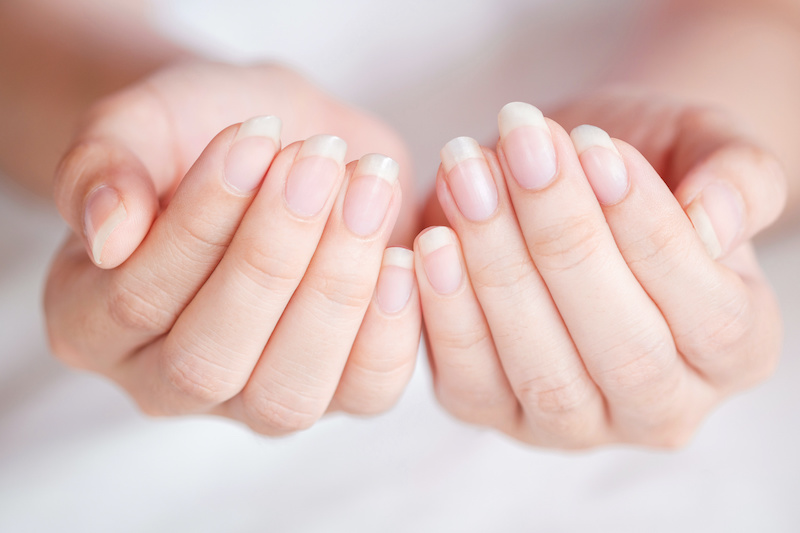
Addressing Nail Problems Associated with Dehydration
Addressing nail problems associated with dehydration is crucial to restoring moisture and improving the overall health of your nails. Here are some tips to help you alleviate dryness, brittleness, and other issues caused by dehydration:
- Increase water intake: Dehydration often stems from not drinking enough water. By increasing your water intake, you can provide your nails with the moisture they need from within. Aim to drink at least 8 cups (64 ounces) of water per day to hydrate your body and nails.
- Use nail oils or cuticle creams: Nail oils and cuticle creams are specifically designed to nourish and moisturize the nails and cuticles. Apply a few drops of nail oil or a small amount of cuticle cream to your nails and massage it in gently. This will help replenish the moisture and improve the overall hydration of your nails.
- Avoid harsh chemicals: Certain nail products, like nail polish removers or harsh cleaning agents, can strip your nails of their natural oils and exacerbate dehydration. Opt for gentle acetone-free nail polish removers and avoid exposing your nails to harsh chemicals as much as possible.
- Wear gloves: When performing household chores or tasks that involve prolonged exposure to water or chemicals, consider wearing gloves. Gloves create a barrier between your nails and these potential dehydrating factors, helping to maintain proper hydration.
- Limit nail treatments: Excessive use of nail treatments, such as gel nails or acrylics, can cause dehydration and damage to your nails. Give your nails regular breaks from these treatments to allow them to recover and regain moisture naturally.
- Eat a nutrient-rich diet: Proper nutrition plays a crucial role in maintaining nail health. Include foods in your diet that are rich in vitamins, minerals, and healthy fats, such as fruits, vegetables, lean proteins, nuts, and seeds. These nutrients can promote nail hydration and prevent dryness and brittleness.
- Keep nails trimmed and filed: Long nails are more prone to breakage and dehydration. Regularly trim and file your nails to maintain a manageable length and prevent them from snagging or getting damaged. Be sure to use proper nail tools and techniques to avoid further stress on your nails.
- Seek professional help: If your nail problems persist despite your efforts to address dehydration, it may be beneficial to consult a dermatologist or a nail technician. They can assess the condition of your nails and provide specialized advice and treatments to improve their hydration and overall health.
Conclusion: Hydration in Nail Health
Prioritizing hydration in nail health can result in nails that are resilient, flexible, and less prone to damage. Adequate internal and external hydration, along with proper nail care practices, helps prevent dryness, brittleness, and other nail problems. By prioritizing hydration and implementing healthy habits, we can achieve strong, beautiful nails that enhance our overall appearance and well-being.
Also Read:
The Ultimate Guide to Glowing Skin: Tips and Tricks
